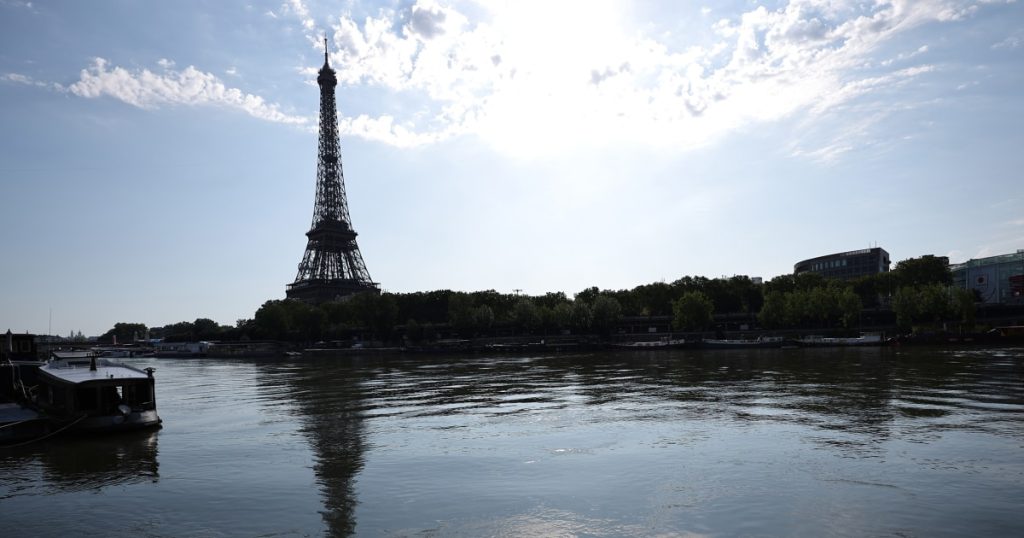Olympic organizers have postponed the men’s triathlon race due to unsafe water conditions in the Seine River. The event was rescheduled for Wednesday after the women’s triathlon. Efforts to clean up the river in preparation for the Olympics have not been successful, with high levels of E. coli contamination reported, particularly after heavy rainstorms. Unsafe levels of fecal matter in the water can cause gastrointestinal diseases, making swimming in the river a health risk for athletes.
Despite the city of Paris investing $1.5 billion to clean up the Seine and improve water quality, contamination levels have remained high, leading to the postponement of the triathlon event. The hope was to make the river clean enough for swimming, but continuous rainfall and overflow from the sewer system have hindered the progress. Organizers canceled swim training and postponed the triathlon race to ensure the safety of the athletes participating in the competition. The repeated spikes in contamination levels have raised concerns about the risks posed by swimming in the Seine.
The presence of high levels of E. coli in the water indicates the presence of potentially harmful bacteria, making it unsafe for swimming. Efforts to improve water quality, including building an underground basin to hold stormwater for treatment, have not been enough to mitigate contamination issues. Monitoring reports have shown that contamination levels exceed acceptable limits, particularly after heavy rain, posing a health risk to athletes competing in the triathlon events. The continued postponement of the race highlights the challenges of ensuring safe water conditions for Olympic competitions.
Authorities in Paris have been striving to clean up the Seine River in time for the Olympics, but ongoing contamination issues have raised doubts about the feasibility of safe swimming conditions. Independent tests have shown that contamination levels consistently exceed permitted limits, raising concerns about the health risks associated with swimming in the river. Organizers have faced challenges in managing water quality and ensuring the safety of athletes, leading to the postponement of the triathlon event due to unsafe water conditions.
The postponement of the triathlon race highlights the ongoing challenges in addressing water quality issues in urban waterways, particularly in preparation for major sporting events like the Olympics. Efforts to clean up the Seine River have not been sufficient to prevent contamination spikes, particularly after heavy rainstorms. The health risks associated with high levels of fecal matter in the water have led organizers to prioritize the safety of athletes and postpone the event to ensure safe competition conditions for the triathletes.
As Olympic organizers and local authorities continue to monitor water quality in the Seine River, concerns about contamination levels and health risks for athletes remain. The postponement of the triathlon race due to unsafe water conditions underscores the complexities of managing urban waterways and ensuring safe swimming environments for competitive events. Despite ongoing efforts to improve water quality, challenges persist in addressing contamination issues and protecting the health of athletes participating in Olympic competitions.


